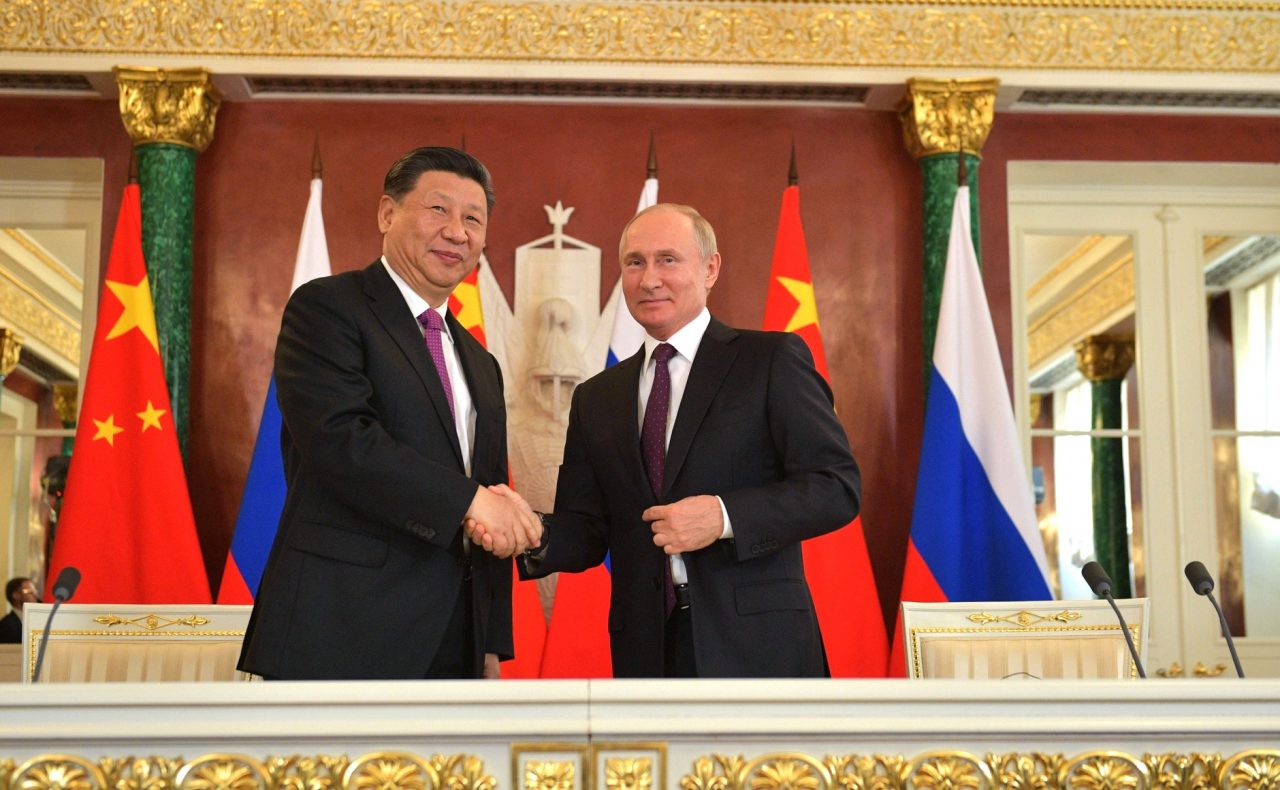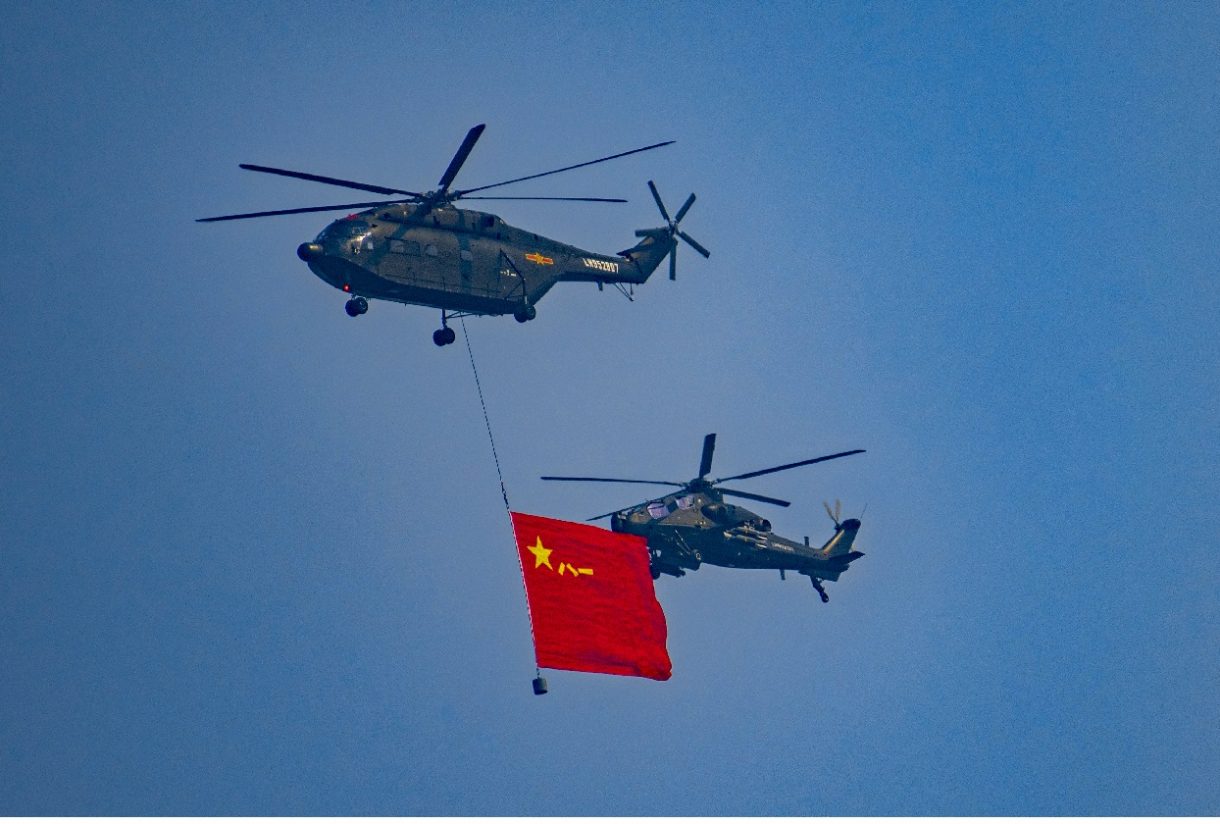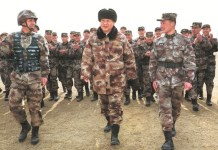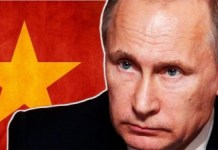As Russia gains control of a large chunk of territories across its eastern border by invading Ukraine, is it oblivious of the prospects of losing territory in its south and south eastern regions to China?
China’s relentless economic activities in these regions of Russia, which include major parts of Siberia, mainly through investments in energy, road/rail construction, and agriculture, have led to this question that has appeared of late in the media and academic circles of Moscow.
The latest developments making this question further relevant were the agreements that Chinese and Russian companies reached on key industries such as energy, food, and other daily commodities on the sideline of the St. Petersburg International Economic Forum (SPIEF), an annual business conference once known as “Russia’s Davos,” from June 15-18.
The most notable among them was the technical agreement on a Russia-China Far East Gas Supply project to strengthen energy cooperation between China National Petroleum Corporation and Russia’s Gazprom.
The agreement “contains the main technical parameters for the cross-border section of the gas pipeline, including the underwater crossing of the Ussuri border river, as well as the physical and chemical parameters of the gas intended for supply,” according to Gazprom.
It may be noted that in February this year, Russia and China had signed a new gas supply deal that would be operational through” the Far East route”, underscoring how escalating tensions with the West have pushed forward Russia’s ‘Pivot to the East’, a long-term strategy to diversify its resource exports to Asian countries, especially China.
The agreement covers the yearly supply of 10 billion cubic meters (cm) of natural gas over a 30-year term. The South-Kirinskoye field off the coast of Sakhalin Island is expected to be the source of supply.

Incidentally, this deal was beside the already existing 30-year Power of Siberia-1 (POS-1) contract, which was opened between China and Russia as early as December 2019, for a yearly supply of 38 billion cm. The POS-1’s gas transmission capacity was upgraded to 53 billion cubic meters in 2021.
But then, apart from Russia’s oil and gas, China needs also Siberia’s currently fallow agricultural lands, with millions of acres lying dormant since the breakup of the Soviet Union.
China is also building roads and rail networks in the region, for which Russia at the moment does not have money but President Putin is keen.
In May, Putin called for the reorientation of Russia’s transportation network from the West, where Russia is under sanctions, to the East in order to facilitate trade with China and the Asia-Pacific region.
Russian columnist Margarita Nikifontova has recently written that Moscow “cannot even develop some single-track rail line to the Sea of Okhotsk, even though that would significantly improve people’s lives, help the Northern Sea Route, accelerate the extraction of natural resources, strengthen the country’s defense capabilities, and so on.”
But the Russian problem is proving to be China’s opportunity. It seems ever ready to invest in the region. Chinese firms are building railways in the Russian north in order to secure access to the enormous reserves of natural resources there.
A bitter Nikifontova, otherwise a proud Russian, laments thus that Moscow cares about little besides money and that “China today feels entitled to enter Siberia and the Russian Far East—precisely reminiscent of the European colonial powers’ attitudes toward Africa and Asia in the past”.
Many strategic analysts seem to be in the same school of thought as Nikifontova. Chris Devonshire-Ellis, the Founder of Dezan Shira & Associates and Chairman of the firm’s International Board of Equity Partners, apprehends that though large tracts of land in Russia’s Siberia and the Far East have been leased to the Chinese, there is no apparent hardcore evidence that it will ever be returned.

“Indeed, should the Chinese refuse to leave, Moscow would be faced with either backing down or drawn into a regional war. This might be 50 years off, but time passes quickly…..There are maps that purport to show parts of the Russian Far East under ‘Chinese management’ – but these appear to have been scrubbed from the internet. It’s hard to separate the facts from fiction in this regional debate,” he warns.
Yaroslav Zolotaryov, a Siberian regionalist, makes another serious point on the increasing population and resource imbalance between China and the Russian Far East.
He is concerned because the number of Chinese immigrant workers in the Russian Far East has gone up by 400,000 since January 2017, while Russia’s Far Eastern Federal District has lost two million people in the same period as a result of higher death rates and outmigration.
Zolotaryov does not buy the official argument of Moscow that “the Chinese People’s Republic is more interested in investments in Siberian enterprises than in populating the region.” He argues that the one almost certainly will lead to the other over time.
To Moscow’s explanation that as the standard of living in China is higher than in Russia, the Chinese won’t be interested in moving to Russia, Zolotaryov points out that the Chinese are in fact moving into Russia and seeking to make their fortunes beyond China’s current borders. “They are now exporting twice as much wealth from Russia as they are bringing to it”, he says.
Zolotaryov is not impressed either by the standard explanation that “the Chinese have other places to move to because a significant part of China is underpopulated”. His counterpoint is that the Chinese move to where there are resources, and there are far more of those in Siberia and the Russian Far East than in the parts of China where populations are small.
Viewed thus, Zolotaryov’s conclusion is that “the Siberian people in the 21st century will be threatened not only by assimilation from imperial Russian-speaking culture, which in fact is already occurring but also by assimilation from a China that is no less imperial and thus of concern to the residents of the enormous region east of the Urals.”
In fact, some other estimates suggest that the number of Chinese citizens living in the Russian Far East ranges up to 2.5 million. And it has sparked concerns that “Beijing might invoke Putin’s own Crimean strategy in order to absorb portions of the Russian Far East and Siberia at some point in the future”.
In a column for the publication “7 Days”, Russian journalist Alexander Sotnik has written that “Vladivostok is almost Chinese, and Transbaikalia is too. Chinese expansion is no longer a horror story, but a harsh reality. It will be possible to formalize their entry into China as provinces quite legitimately, using a tool extracted from The Pandora’s box by Putin himself in the case of the annexation of Crimea (through a referendum).”
When seen through the prism of history, this development could become quite onerous for Russia. All told, China and Russia have fought a border war already(1969). It is true that at the moment China is not officially claiming the territories it lost to the Czarist Russia in 1858-1860, including all of Primorye and the Amur Valley. But, no one in China has forgotten about this annexation of the 19th century.
However, in their private capacities, some Chinese propagandists do remind from time to time that Siberia belongs to China. The current border (approximately 2,740 miles) is an artifact of the 1860 Convention of Peking, at a time when the Second Opium War had weakened China and the Czarist Russia was expanding.
Incidentally, in a July 2, 2020, tweet, a Chinese state media official, had scorned Russia’s 160th-anniversary celebration of the founding of Vladivostok. The official recalled that Vladivostok was a military harbor built on the Chinese city of Haishenwai, which was annexed “via (the) unequal Treaty of Beijing.”
This “tweet” of #Russian embassy to #China isn’t so welcome on Weibo
“The history of Vladivostok (literally 'Ruler of the East') is from 1860 when Russia built a military harbor.” But the city was Haishenwai as Chinese land, before Russia annexed it via unequal Treaty of Beijing. pic.twitter.com/ZmEWwOoDaA— Shen Shiwei 沈诗伟 (@shen_shiwei) July 2, 2020
Time has changed. Now, China seems to be much stronger than Russia. And it is natural, as Russian political scientist Andrei Kalachinski admits, “If a large state (i.e. China) grows stronger, it is logical that it starts thinking whether it has handed over too many of its territories in the past two centuries.
China has managed to get back nearly all the former colonies, such as Macao and Hong Kong. For China, Primorsky Krai (Vladivostok area) is a part of the former Manchuria… (China) may deliver an ultimatum to us at some point under any old pretext.
The British, the Germans, the Portuguese — all of them have left the former territory of China. Only the Russians have remained. It is good that we have remained, but the devil only knows (what may come of this).”
Will then Russia’s invasion of Ukraine make China’s Siberian appetite stronger? Time will tell.
- Author and veteran journalist Prakash Nanda is Chairman of Editorial Board – EurAsian Times and has been commenting on politics, foreign policy on strategic affairs for nearly three decades. A former National Fellow of the Indian Council for Historical Research and recipient of the Seoul Peace Prize Scholarship, he is also a Distinguished Fellow at the Institute of Peace and Conflict Studies. CONTACT: prakash.nanda@hotmail.com
- Follow EurAsian Times on Google News




